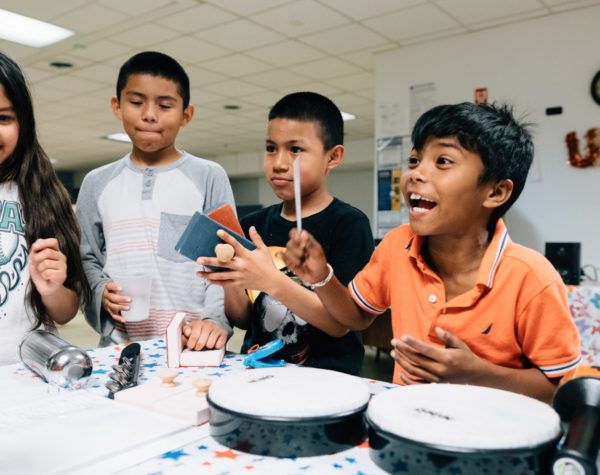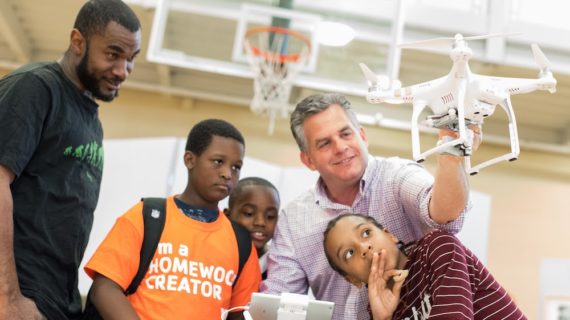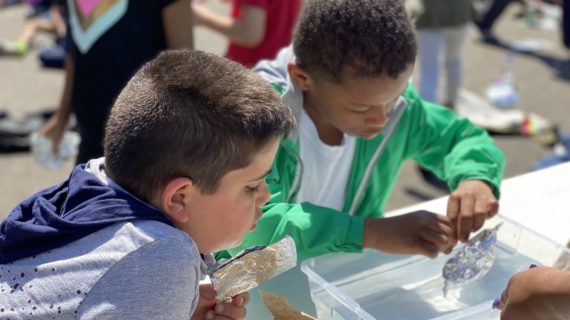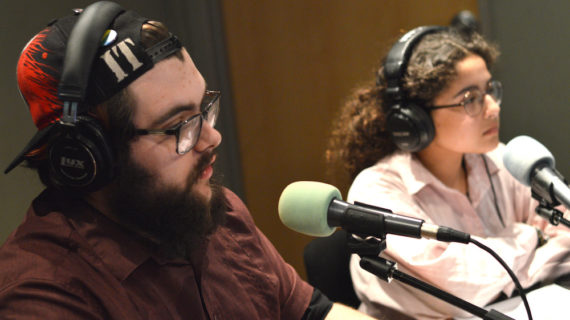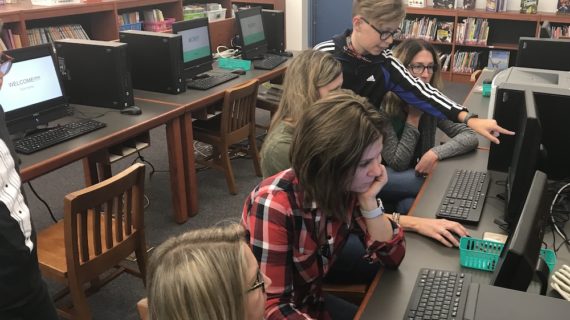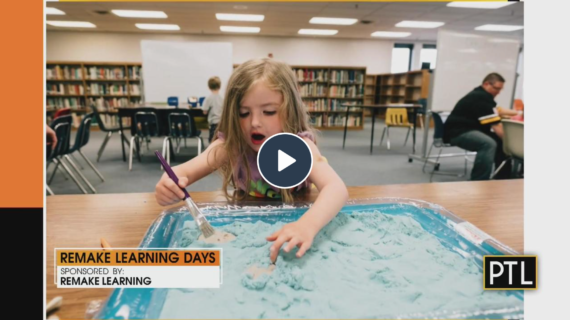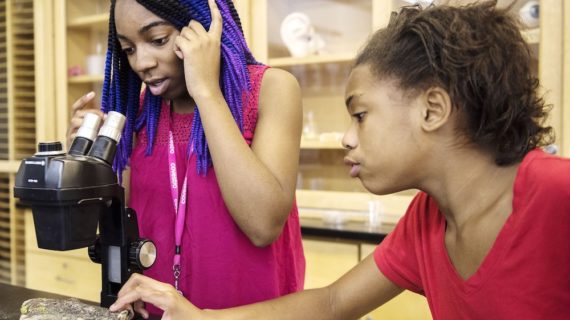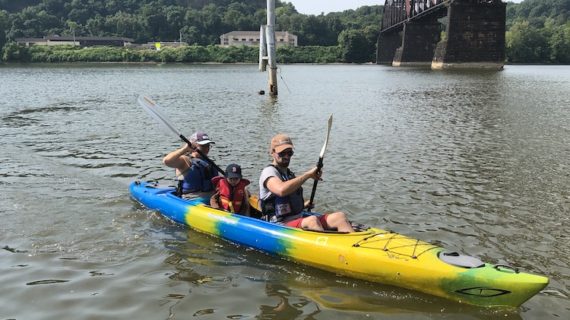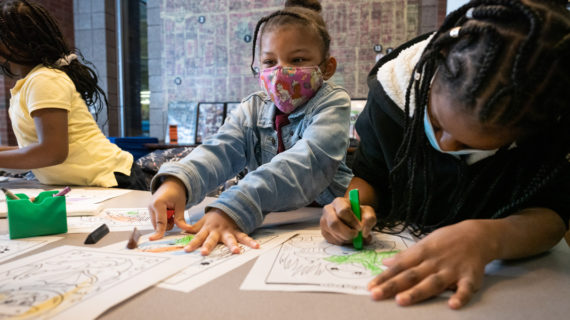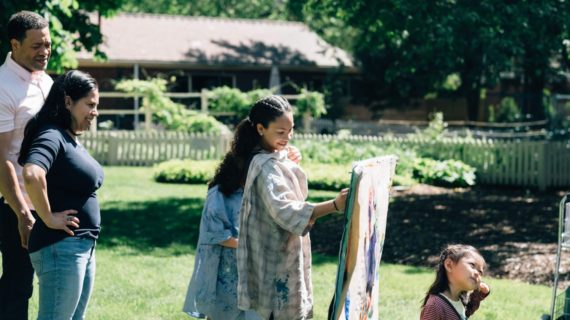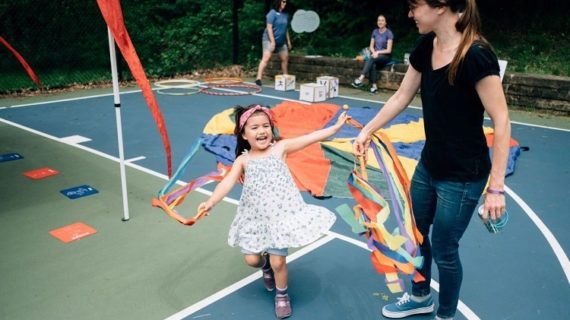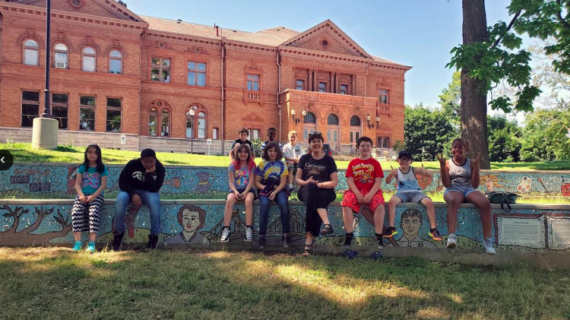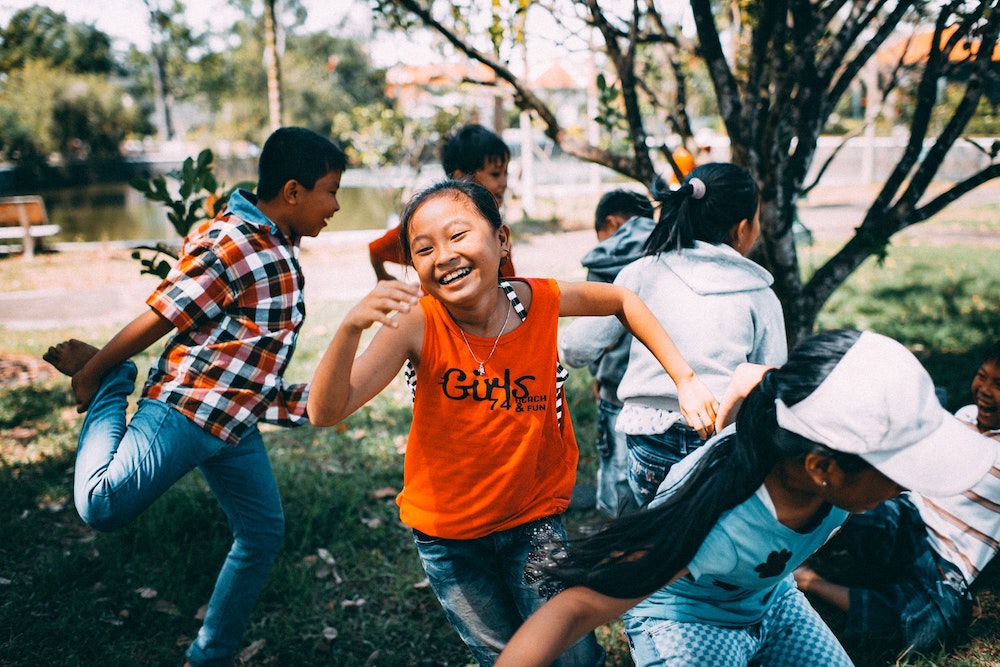
7 questions to ask before sending your kids to summer camp in Pittsburgh
Photo above by MI PHAM on Unsplash.
It’s almost time for summer camp in Pittsburgh. With the pandemic easing up, some local kids will be going to a camp for the first time in several years. And some may be going for the very first time. So we’ve asked folks from several local camps — the Boys and Girls Clubs, Sarah Heinz House and Carnegie Science Center — for tips on what kinds of questions parents should ask as they’re choosing a camp and preparing for the first day.
Camps always make an effort to help kids have a good summer, says Bob Bechtold, director of programs at Sarah Heinz House, which offers day camp and overnight camp. But “to ensure that kids are successful, parents can start doing some stuff at home to make sure that they set their campers up for success.”
Here are some valuable questions to keep in mind about summer camp in Pittsburgh:
1. ASK FOR DETAILS ON HOW KIDS WILL SPEND THEIR TIME
“When it comes to summer camps, there’s a broad spectrum of programming,” says Jessi Marsh, vice president of advancement & philanthropy for the Boys & Girls Clubs of Western Pennsylvania (BGCWPA). Some camps around the Pittsburgh region have unique specialties or specialize in things like arts programming, while others like BGCWPA offer everything from STEM learning to outdoor fun.
Camps are happy to give you details on what they’re offering this summer and how it may vary week to week, so make sure you ask. BGCWPA, for example, offers theme weeks like “Under the Sea” or an Olympics-style competition, which might appeal to some kids more than others. So do ask for details to make sure a particular camp’s offerings are right for your child.
It’s also good to ask about the camp’s policy on bringing digital devices and whether kids can use them during the days, says Julie Bowman, manager of camps and public experiences at the Carnegie Science Center. “We encourage them not to bring a cell phone. And if they do bring a cell phone, we ask that they keep it tucked away.
For a child who is accustomed to using a digital device in their free time, a camp’s device policy is an important thing to know about in advance.
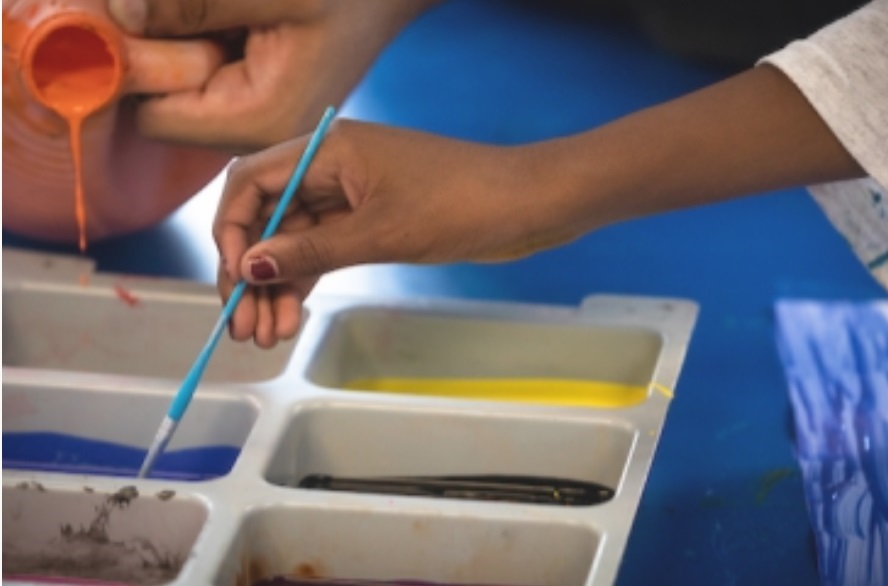
2. ASK FOR ALL THE DROP-OFF AND PICK-UP DETAILS
Arriving on time or early is a bigger help to kids than parents may realize, Bechtold says. At the beginning of the day, “the kids are learning what their schedules are going to be. That’s when they know what’s coming next,” he says. So being present for that “helps lower the anxiety of the campers” at day camp. So be sure you know exactly when the camp day starts.
“And in a resident camp situation where the kids are going away for 11 days,” Bechtold says, arriving late and jumping onto a bus quickly can mean that “their whole trip is just starting with anxiety.” So it’s vital to know exactly when the bus will be leaving, and from where, and be at that spot early.
Pick-up time at the end of the day (or especially at the end of several weeks of overnight camp) is also very important to kids. If you can’t arrive on time, Bechtold says, make sure you have asked in advance for a phone number to call if you’re stuck in traffic or running late. If you have that phone number and can call, the adults in charge will let your child know you’re on the way.
Bechtold says a child who doesn’t see you waiting there when they step off the bus after 10 days will feel a lot better if an adult from the camp comes right up to them and says “Your parent just called – they’re in traffic but they can’t wait to see you. They’ll be here soon.”
And even at the end of 6 or 8 hours at day camp, it can help a child to know that you’ve called to say you’re on the way.
Bowman mentions it’s also important to ask if there is pre-camp care available in the morning and after-camp care in the afternoons or early evenings, and find out the cost. Marsh agrees: Although BGCWPA offers extended care options, not every camp does and those that do have varying policies and prices.
3. ASK WHAT KINDS OF TRAINING THE COUNSELORS HAVE
Marsh says BGCWPA camps are built around high-quality programming that includes sports, art, STEM activities and literacy — all offered by a staff that’s trained to make sure campers are learning.
“These programs are important to offer because kids have a lot of mental stimulation throughout the school year, then they stare at the TV or iPads all summer,” she says. “We are serious about supporting them and preventing that academic summer slide.”
The Carnegie Science Center has a similar approach: When they hire staff for their summer camp, Bowman says they look mainly for teachers and student-teachers. The focus is on fun, but the goal is to make camp as enriching as possible.
So as you choose a camp, make sure to ask about their approach to hiring and training their employees.
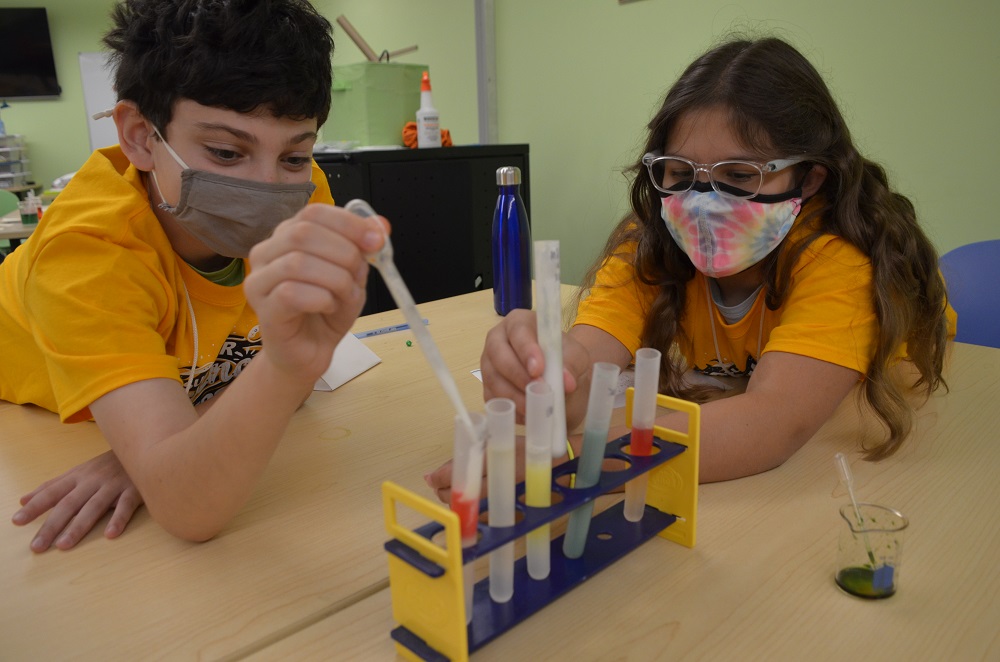
4. ASK ABOUT THE CAMP’S COVID SAFETY PLANS, MEDICAL POLICIES AND APPROACH TO FOOD RESTRICTIONS
Along with policies on mask-wearing and vaccination, ask about the camp’s policy on administering medication (including over-the-counter items like Tylenol). “We do not administer medication,” says Bowman, “and we do require parents to sign a form, so that the child can take their own medication.”
If your child has food allergies or restrictions, she says, look into what sort of food is provided at the camp and how they might approach it if a child needs to remain gluten-free, for example. And with COVID still circulating, Bowman suggests asking about the camp’s cancellation and refund policies, in case that might be necessary for medical reasons.
5. ASK TO SHARE INFORMATION ABOUT THE CHILD’S PERSONALITY
Camps will want to know how you handle it when your child makes a poor choice or doesn’t behave. How do you diffuse situations and get the child on the right track? What kinds of feedback does your child respond to and what doesn’t usually work? Conversely, what kinds of positive reinforcement does your child respond to well? You won’t be bothering the camp or taking up too much of their time if you ask in advance to have a quick call with someone who’ll be working with your child.
You can also ask if there are confidential forms where you can share this information, and you can attach an extra page if needed. Confidential forms are only seen by the camp counselors who need the information, Bechtold says. So fill out everything and add a page if necessary. More information is always better, so that camp directors and counselors can help your child have the best possible summer.
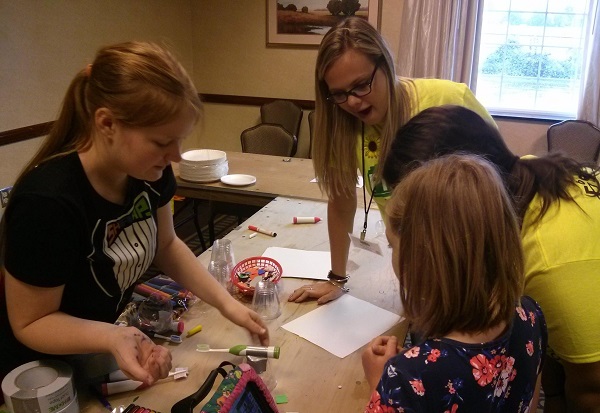
6. ASK ABOUT SCHOLARSHIPS
Many camps offer help with tuition, Bowman says, but “sometimes they’re not widely advertised.” So if this is something your family might benefit from, it’s always good to ask.
7. ASK EXACTLY WHAT TO BRING, EVEN IF YOU THINK YOU KNOW
Day camps and sleepaway camps usually have emergency items like towels that campers can borrow. But many kids can feel very uncomfortable telling an adult they’ve forgotten something and asking for help. Some kids, Bechtold says, will even do without an item they need just so they can avoid asking. So if you’re not sure exactly what to pack for the day or for overnight, be sure to ask in advance.
Then when you’re packing, especially for overnight camp, double-check from a written list so you won’t miss anything.
Though Bechtold points out that parents can play a powerful role in limiting or fueling kids anxiety about camp, depending how they approach the experience. So when you’re doing things like packing and double-checking your list, “don’t frame it like, ‘Oh my gosh, I hope you’ve got everything! I don’t want you to miss out on anything!’,” he says.
“Just pack with the kid. Make it an enjoyable thing. And if you need to, when the kid goes to bed take everything out of the suitcase, and check it again.”
